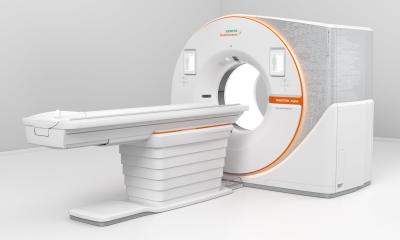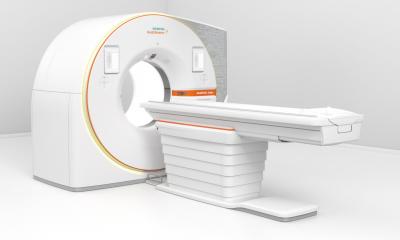CUBRIC
Unravel the mysteries of the human brain
Her Majesty Queen Elizabeth II has officially opened the Cardiff University Brain Research Imaging Centre (CUBRIC), a unique neuroimaging research hub in Wales. The facility will seek to provide unprecedented insights into the causes of neurological and psychiatric conditions such as dementia, schizophrenia and multiple sclerosis, as well as an understanding into the mechanisms of a healthy brain. Four magnetic resonance imaging (MRI) systems from Siemens Healthineers will aid research by providing insights into the structure, function and chemical composition of living brain tissue, in turn helping to develop better neurology and psychiatric treatments.


The research set to take place in CUBRIC will use cutting-edge methods that involve imaging and cognitive techniques, such as microstructural imaging, functional MRI and brain stimulation. These will then be applied to key psychological and clinical questions. It is hoped that the research will have a direct impact on the understanding of neurological and psychiatric conditions, including changes in the brain that lead to disordered cognition and mental health.
Professor Derek Jones, Director of CUBRIC, comments, "The Cardiff University Brain Research Imaging Centre is unique in Europe and the equal of any facility of its kind in the world. This is the most exciting development in this field in the past decade and the start of a new era in neuroimaging. The technology will allow us to establish a much better picture of the make-up of the brain, including detailed measurements of the fibre-bundles that interconnect different parts of the brain. Ultimately we hope that this will help provide new targets for treatment."
Dr. Bernd Montag, CEO Siemens Healthineers, states, "The combination of a number of leading experts in their field, with some of the world's most powerful imaging technology, provides CUBRIC with a significant opportunity to make groundbreaking advancements that could transform the way we understand and treat neurological diseases. The grand opening is testament to the site's significance, and its importance in the ongoing battle to tackle a rise in neurological conditions; we look forward to working closely with CUBRIC to continue to support them on this journey."
One of the four MRI systems in situ, the Magnetom Skyra Connectom 3T1, is currently the only one of its kind in Europe. The advanced technology will allow scientists to study structures in the micron (thousandth of a millimetre) range. It features 300 mT/m gradient coils which are over 6 times more powerful than those found in conventional MR systems. This will allow researchers to probe tissue microstructure in much finer detail and further depth.
CUBRIC also houses a Magnetom 7T2, which provides ultra-high spatial resolution and has more than double the field strength of most MRI scanners. The technology will allow the centre to perform imaging of previously unseen brain structure with perfect contrast for analysing subtle differences in brain structure and function in neurological and psychiatric disorders. Two further Magnetom Prisma 3T systems in place are ideally suited for running the most demanding MRI research studies on large patient groups, pharmaceutical trials and experimental MRI.
Source: Siemens Healthineers
1 Magnetom Skyra Connectom 3T is still under development and not commercially available yet. Its future availability cannot be ensured.
2 Magnetom 7T is ongoing research. All data shown are acquired using a non-commercial system under institutional review board permission. Magnetom 7T is still under development and not commercially available yet. Its future availability cannot be ensured.
09.06.2016





